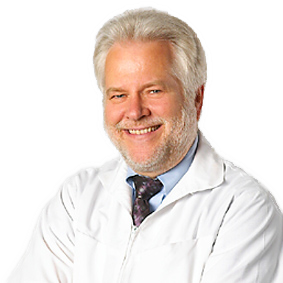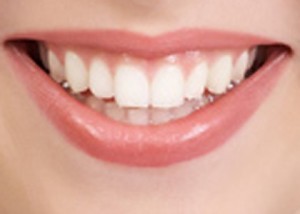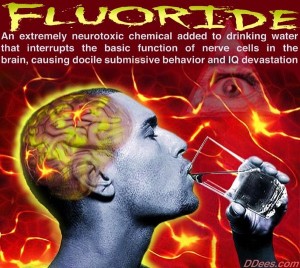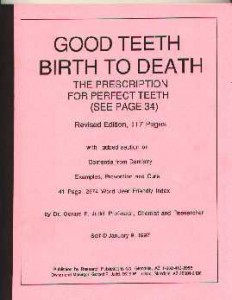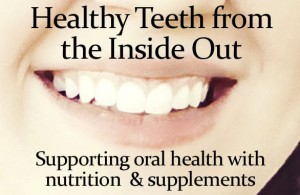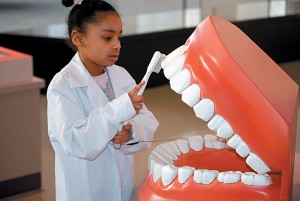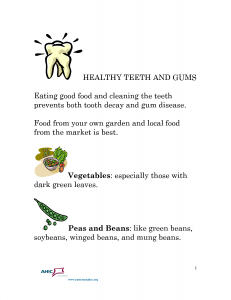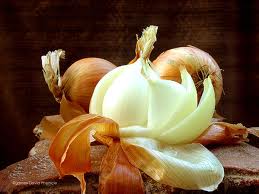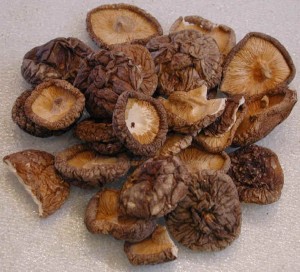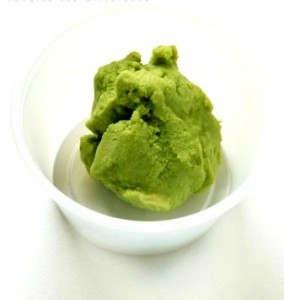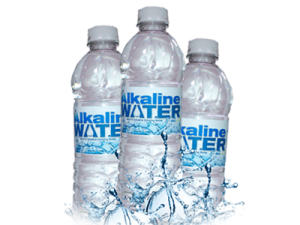Dr. Price (a Harvard Professor) was one of the greatest pioneers in this field of tooth cures. His amazing discoveries based on ancient wisdom from indigenous cultures across the planet-Fiji to the Swiss Alps-showed how to restore dental health without surgery or chemicals. This he did by going to many different indigenous groups the world over who showed remarkable quality of teeth. There were (at least in the early 1900s) people every-where to be found with perfect or near-perfect teeth. Instead of 50 to 95 percent tooth decay like people in modern society, certain peoples exhibited 5 to 0 percent tooth decay! What were these people doing differently and could their habits or results be emulated? This is what Dr. Price set out to find out.
Time and time again, Dr. Price documented the tragic plight of indigenous people coming into contact with industrialization. For extended periods of time, many of these groups enjoyed a life without significant tooth decay. But with the arrival of industry and commerce, and with them-modern foods-their teeth began to degenerate. Weston Price was widely respected in his time, and frequently published in many dental journals, including several articles in the Journal of the American Dental Association.
Fluoride
Fluoride is the smallest negative particle and destroys enzyme molecules at very low concentrations. Fluoride actually destroy 83 of the enzymes in the body. The mechanism and process by which it destroys these enzymes has been proven by X-ray studies. Fluoride breaks up the hydrogen bonds that keep your mouth and teeth intact. It is extremely poisonous unleashing positive hydrogen bonds in enzymes and proteins. Fluoride also detaches the gum tissues forming 1-to-8 mm deep pockets. Fluoride is a nerve poison that causes cavities.
According to Dr. Judd, (a Ph.D., Chemist and professor of Chemistry for over 33 years, and a Researcher in the industry), "To avoid fluoride is to prevent more than 114 ailments ... These 114 medical side effects extend all the way from cancers down to headaches caused by 1 ppm fluoride in the water. Thirteen of these side effects are proven by a double blind study on 60 patients by 12 physicians, 1 pharmacist and 1 attorney."
Using nutrition, Dr. Weston A. Price reduced the rate of tooth decay 250 times in 17 individuals who had severe tooth decay. In this group, approximately half of all teeth had been affected by decay prior to Price's nutritional program. After the program, only two new cavities formed within a 3-year time period putting the rate of reoccurrence at 0.4 percent.'
SILICA
Calcium, of course, is important for your bone growth and formation but even more important is the mineral called silica (silicon dioxide). You don't have enough of this mineral in your diet and you can take a ton of calcium and brush your teeth five times a day and still lose your teeth, just like your hair in the shower, as you get older without it.
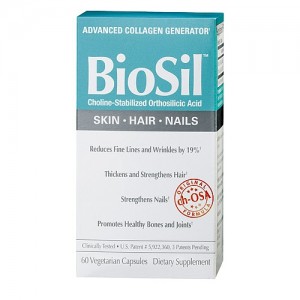 The formula called BioSiL is known to provide a sufficient nutritional support for your tooth repair/growth. It will improvc your teeth, bones, and connective tissue, and will also help calcium metabolize in your body (without it most of your calcium will go right through you, especially if you take it as a part of a common multivitamin formula). According to the makers of BioSiL (Si[OH]) it is 20,000 times more soluble than silica (Si02-found in horsetail and colloidal gels) and 2.5 times more bioavailable than other forms of silicon according to the makers of Biosil.
The formula called BioSiL is known to provide a sufficient nutritional support for your tooth repair/growth. It will improvc your teeth, bones, and connective tissue, and will also help calcium metabolize in your body (without it most of your calcium will go right through you, especially if you take it as a part of a common multivitamin formula). According to the makers of BioSiL (Si[OH]) it is 20,000 times more soluble than silica (Si02-found in horsetail and colloidal gels) and 2.5 times more bioavailable than other forms of silicon according to the makers of Biosil.
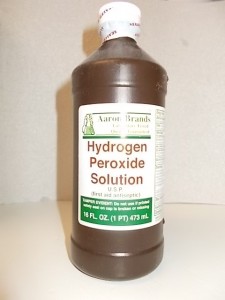 Besides nutrition here are some other recommendations: soak your tooth brush in hydrogen peroxide, you can also use hydrogen peroxide as a mouthwash. Hydrogen peroxide is a natural, safe antibiotic. Use salt and baking soda on your toothpaste. Find a fluoride free toothpaste to use, below are some options. Be sure to brush your gums. If you have a tooth infection besides using hydrogen peroxide, chewing on the clove of garlic (a natural antibiotic) can work quite well.
Besides nutrition here are some other recommendations: soak your tooth brush in hydrogen peroxide, you can also use hydrogen peroxide as a mouthwash. Hydrogen peroxide is a natural, safe antibiotic. Use salt and baking soda on your toothpaste. Find a fluoride free toothpaste to use, below are some options. Be sure to brush your gums. If you have a tooth infection besides using hydrogen peroxide, chewing on the clove of garlic (a natural antibiotic) can work quite well.
Teeth cleaning
Teeth cleaning options for optimum cleaning instead of regular tooth paste would be toothsoap (www. toothsoap.com). Otherwise you can always make your own with all or some of these ingredients:
1. Unprocessed raw coconut oil (also swishing this for a minute a day will help clean and pull out junk from the teeth)
2. Tea tree oil
3. Baking soda 1/10 part
4. Extra virgin olive Oil (2 part)
5. Spearmint or peppermint oil (1/10 part)
6. Unprocessed sea salt or Himalayan salt (1/50 part)
7. Eucalyptus oil (1/10 part)
8. Food-grade hydrogen peroxide (1/10 part)
BELIEVE IT OR NOT, THE FOODS you consume can affect your smile as much as brushing or flossing. Every time you eat sugary or starchy foods, the bacteria in plaque get another chance to form decay-causing acid. And bad breath can make you want to hide even the most pristine teeth.
But choosing the following foods that naturally fight bacteria, remove plaque, strengthen enamel, and freshen breath is a good way to preserve your pearly whites.
1. Celery
Celery protects your teeth in two ways, says Lana Rozenberg, D.D.S., a holistic dentist and founder of Rozenberg Dental Day Spa in New York City. The extra chewing it requires produces plenty of saliva, which neutralizes the bacteria Streptococcus mutans that causes cavities. Additionally, chomping on naturally abrasive foods massages gums and cleans between teeth. Try This: Snack on a handful of raw celery or carrots once a day.
2. Cheese
Studies from the last decade show that cheese, with its low carbohydrate and high calcium and phosphate content, provides several benefits for your teeth. It helps balance your mouth's pH (an acidic pH encourages the growth of cavity-causing bacteria). Cheese also preserves and rebuilds tooth enamel and produces saliva, which kills the bacteria that cause cavities and gum disease. Try This: Enjoy a 1-inch cube (about 1/2 ounce) of cheese after dinner instead of a sweet dessert.
3. Green Tea
Green tea (Camellia sinensis) contains substances called catechins that kill the bacteria in your mouth that turn sugar into plaque (a sticky mass of bacteria, sugars, proteins, and fats that produces cavity-causing acid when it comes in contact with sugary or starchy foods). Catechins also wipe out the bacteria that cause bad breath. Try This: Drink 2 to 5 cups of green tea (regular or decaffeinated) a day, says Mindy Green, director of research at the Herb Research Foundation in Boulder, Colo. Consider making a thermos of green tea to drink at work. The night before, steep 3 to 4 green tea bags in 4 cups of boiling-hot water in a covered thermos for three to five minutes. Remove the bags. Serve the tea the next day over ice or after reheating it.
4. Kiwi Fruit
For their size, kiwis pack more vitamin C than any other fruit. In fact, one large kiwi supplies more than 100 percent of your recommended daily amount. If you don't get enough vitamin C, research shows that the collagen network in your gums can break down, making your gums tender and more susceptible to the bacteria that cause periodontal disease. Try This: Instead of topping your morning oatmeal with brown sugar, use a sliced kiwi.
5. Onions
Onions contain powerful antibacterial sulfur compounds. In a 1997 test tube study, onions killed various types of bacteria, including S. mutans. Research indicates that they are most powerful when eaten freshly peeled and raw. Of course, raw onions can do a number on your breath, so be sure to have some fresh parsley on hand (see below). Try This: Add a few onion slices to salads and sandwiches each day.
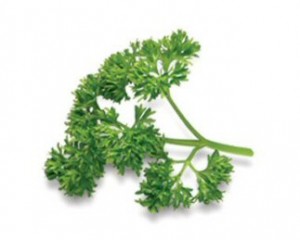
6. Parsley
Chewing parsley or mint leaves after a pungent meal will help you maintain sweet-smelling breath. These herbs contain monoterpenes, volatile substances that travel quickly from your bloodstream to your lungs, where their odor is released via your breath. Try This: Top zesty dishes with a few tablespoons of minced fresh parsley or garnish dessert with a few sprigs of fresh mint.
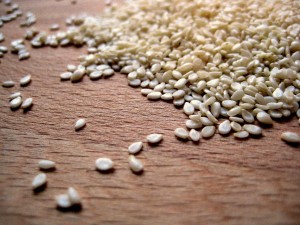
7. Sesame Seeds
According to fossils, our Paleolithic ancestors had great teeth. Anthropologists suggest that this is partly due to the cleansing action of primitive foods like seeds, which slough off plaque and help build tooth enamel. Sesame seeds, for example, are also high in calcium, which helps preserve the bone around your teeth and gums. Try This: Sprinkle a tablespoon of sesame seeds on salads and steamed vegetables a few times a week for a gentle teeth cleaning and 87 mg of calcium.
8. Shiitake Mushrooms
A 2000 study in Caries Research showed that lentinan, a sugar found in shiitake mushrooms, prevents mouth bacteria from creating plaque. Try This: A few times a week, add four to five sliced shiitakes to soups or stir-fries. Buy fresh shiitakes or dried ones, which can be reconstituted by soaking them in hot water for about 25 minutes before use.
9. Wasabi
Otherwise known as Japanese horse-radish, this condiment not only provides zing to sushi, it also protects your teeth. A 2000 study in Biofactors revealed that the substances that make wasabi taste hot, called isothiocyanates, also inhibit the growth of cavity-causing bacteria. Try This: Eating wasabi a few times a week will protect you from cavities. For a smile-saving salad dressing, combine 3 tablespoons rice wine vinegar, 1 tablespoon honey, 1 teaspoon wasabi paste, 1 teaspoon soy sauce, and 1/2 teaspoon sesame oil.
10. Water
Drinking water keeps your gums hydrated and is the best way to stimulate saliva--your body's greatest defense against the bacteria that cause plaque and cavities. Rinsing your mouth with water also helps wash away trapped food particles that decompose in the mouth and cause bad breath. Try This: Aim to drink six 8-ounce glasses of purified water throughout each day to keep your gums (and whole body) hydrated and to stimulate saliva. If you can't brush your teeth after eating, be sure to rinse your mouth with water.

